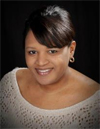 Many things have changed since ebooks took over. Types of writing that had become obsolete in print publishing have been reborn. I think we can agree that nothing has seen resurgence like short stories, series, and serials. I’m not gonna BS you. Look I think every writer should just break out and write a series. I think in genre fiction standalones are dying. I didn’t think that way at first but as the years go by, I’m beginning to see this happening.
Many things have changed since ebooks took over. Types of writing that had become obsolete in print publishing have been reborn. I think we can agree that nothing has seen resurgence like short stories, series, and serials. I’m not gonna BS you. Look I think every writer should just break out and write a series. I think in genre fiction standalones are dying. I didn’t think that way at first but as the years go by, I’m beginning to see this happening.
Now I’m not saying standalones don’t have their place. Every book is not meant to be a series, but standalones these days do better in literary fiction. The genre world has been completely taken over with series, trilogies, sagas, and series. There is no denying that. If you wonder why this is happening, it’s commonsense. Series writing is a win-win for authors and readers. Readers get more stories with the characters they’ve grown to love, and writers get to spend more time with the characters they loved creating.
As far as sales, nothing guarantees sales but it’s a proven fact that concerning today’s genre fiction, series are the hottest sellers. A series gives the author the best chance to connect with loyal readers. If a reader reads a book in a series, they are more inclined to check out the others. Even if readers sometimes did not care for the installment they read, they might still check out others in the series. The number one reason series sell so well is because readers enjoy the characters and they wanna follow them from book to book.
I’ve been writing a series since 2011 and I’m fully enjoying it. I find that people are more open to your work when it’s a series. I love writing series and aside from maybe two more standalones that I plan to release, I don’t think I will ever wanna write another standalone. It’s gotten to where I am bored when I try to write a standalone. I feel like if I am not gonna commit to these characters for a series, then why bother? That’s just how I personally feel. I no longer have joy in writing standalones. They don’t hold me and I think that’s what’s going on with many readers. Readers have come to expect a series. Now a day when a reader reads a book, the first thing they ask is, “Is there a part two coming? I hope this is going to be a series!” Readers want series so we need to give them what they want.
A series also helps an author build up their backlist quicker because when you’re familiar with characters and setting, you don’t have to go through all the beginning steps for the next book. That allows you to write a bit faster on those next stories. The faster you finish, the more books you have out. You don’t have to try to get to know the characters or set the stage because you’re already comfortable and familiar with what you’re writing. Another great thing about series is that the world is the author’s oyster. There is so much you can try within a series. Also a series can be done in any genre but they do particularly well in romance, mystery, crime fiction, and fantasy.
It’s not rocket science and I’m sure I’m not telling some of you something you don’t already know, but this is for those on the fence when it comes to writing a series. I’m telling you to write one! If you write in a genre where series do extremely well, why not? If you love those characters, spend time with them! Let them have many adventures and let your readers come along for the ride.
There are different types of series and you should decide which you wanna write. You can write a novel series, short story series, novel serials, short story serials, etc. Write all different kinds if you want! Play around and explore!
So if you want some advice from me then I’d definitely invest in a series, point blank. I think that it’s the best option for a writer to gain a loyal audience in the digital age.
Stacy-Deanne
If you found this post helpful, please use the Share buttons to spread the word about it.
Don’t have a copy of Become A Successful Author? What are you waiting for?Become A Successful Author is used in the “How To Write That Novel” course at Chicago State because it covers everything from branding to writing to editing to formatting and uploading electronic and print books to marketing and so much more. Your time is money. Look at all the time, thus money, you’ll save by ending your search for answers: Purchase Become A Successful Author for only $4.99 (eBook) or$9.99(print) from: Amazon (US), Amazon (UK), Barnes & Noble








